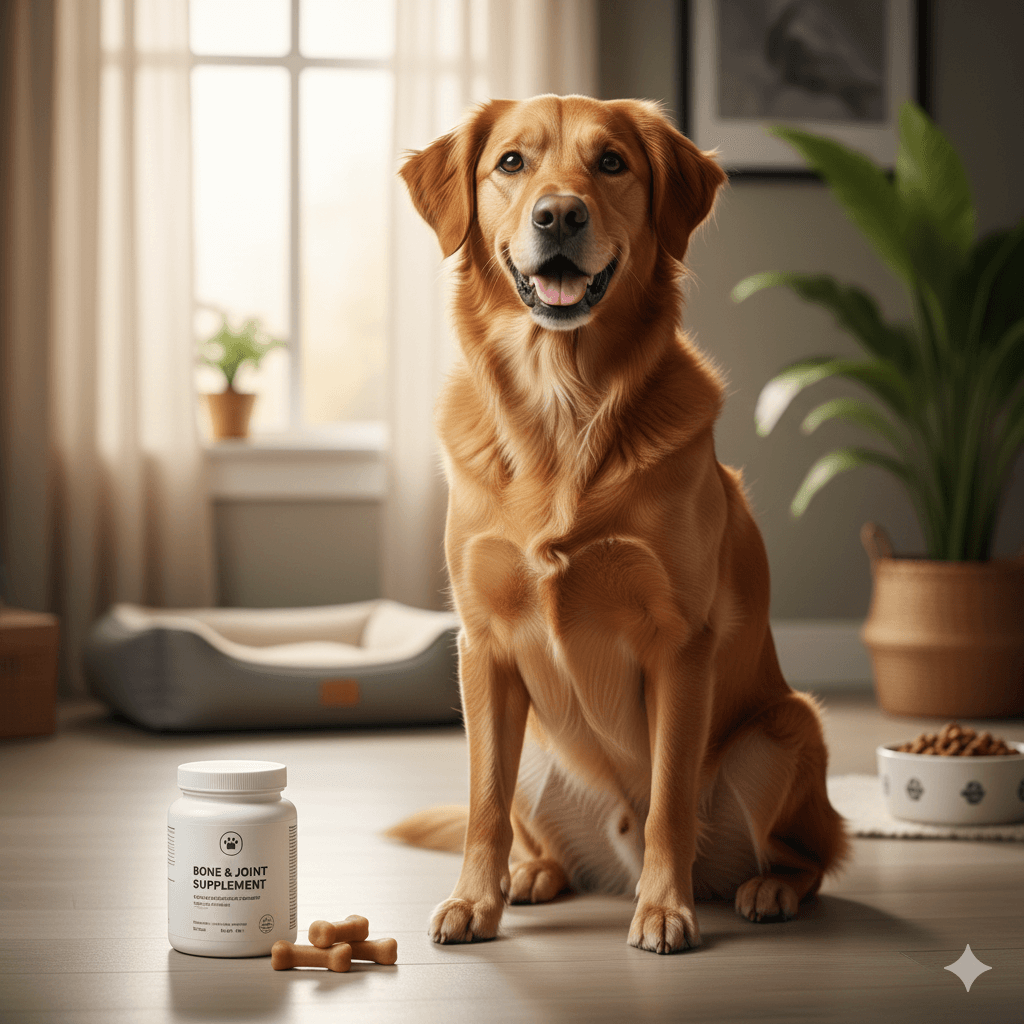Dog Vasectomy: What You Need to Know
When it comes to managing your dog’s reproductive health, a vasectomy is an alternative procedure that many pet owners are curious about. Unlike traditional neutering, a vasectomy allows dogs to retain their natural hormones while preventing them from reproducing. This surgical option has gained attention for its unique benefits and considerations. If you’re exploring ways to ensure your furry friend remains healthy and responsible without altering their hormonal balance, understanding the ins and outs of a dog vasectomy is essential. Let’s dive into everything you need to know about this procedure, from its purpose to its potential advantages and drawbacks.
What Is a Dog Vasectomy?
A dog vasectomy is a minimally invasive surgical procedure designed to prevent reproduction by blocking the flow of sperm. While less common than traditional neutering, it offers a viable option for pet owners seeking specific outcomes. Here’s what you should know about how it works and why it might be chosen over other methods.
Targets the Vas Deferens:
The procedure involves cutting or sealing the vas deferens, the tube that carries sperm from the testicles. This prevents fertilization without removing the testicles.Preserves Hormonal Balance:
Unlike castration, a vasectomy leaves the dog’s testosterone-producing organs intact, maintaining their natural hormone levels.Minimally Invasive Surgery:
The procedure is quicker and less invasive than traditional neutering, often resulting in faster recovery times.Prevents Unwanted Litters:
By blocking sperm production, a vasectomy ensures your dog cannot father puppies, addressing concerns about overpopulation.Not a Behavioral Solution:
Since hormones remain intact, behaviors like marking, mounting, or aggression may persist after the procedure.
Understanding these aspects of a dog vasectomy helps clarify its role as a reproductive control method rather than a behavioral modification tool.

Benefits of Choosing a Dog Vasectomy
Opting for a vasectomy instead of traditional neutering can offer several advantages, depending on your goals for your dog’s health and lifestyle. Here are some key benefits to consider.
Maintains Natural Hormones:
Preserving testosterone can support muscle mass, metabolism, and overall vitality in male dogs.Reduces Risk of Certain Health Issues:
Retaining the testicles eliminates risks associated with their removal, such as complications from surgery or long-term urinary issues.Faster Recovery Time:
Vasectomies typically involve shorter surgeries and less post-operative care compared to full neutering procedures.Addresses Overpopulation Concerns:
Like neutering, a vasectomy effectively prevents unwanted litters, contributing to population control efforts.Suitable for Working Dogs:
For breeds used in hunting, herding, or protection work, maintaining hormonal balance may enhance focus and drive.
These benefits make a vasectomy a compelling choice for pet owners prioritizing their dog’s physical and hormonal well-being.
Check this guide 👉 How Long After Neutering Is a Dogs Testosterone Gone? Best 7 Tips
Check this guide 👉 7 Tips to Spot Signs of Infection After Neutering Your Dog!
Check this guide 👉 What Happens When Dogs Get Stuck After Mating: Best 7 Tips!
Advantages of Dog Vasectomy | Considerations to Keep in Mind |
|---|---|
Preserves natural hormone levels | Does not address aggressive behavior |
Faster recovery time | Requires finding a skilled veterinarian |
Lowers risk of surgical complications | May cost more than traditional neutering |
Prevents unwanted litters | Not widely available in all areas |
Ideal for working or performance dogs | Behavioral issues may persist |
How to Prepare Your Dog for a Vasectomy
Preparing your dog for a vasectomy ensures a smooth procedure and quick recovery. Taking the right steps beforehand can minimize stress and complications.
Consult Your Veterinarian:
Schedule a pre-surgery consultation to discuss your dog’s health, suitability for the procedure, and any concerns you may have.Follow Pre-Surgery Instructions:
Your vet may advise fasting your dog for several hours before the procedure to reduce anesthesia-related risks.Create a Comfortable Recovery Space:
Set up a quiet, cozy area where your dog can rest undisturbed during their recovery period.Stock Up on Supplies:
Gather essentials like soft bedding, food bowls, and medications prescribed by your vet to aid in post-operative care.Plan for Post-Surgery Monitoring:
Arrange for someone to monitor your dog closely after the procedure to ensure they heal properly and avoid excessive activity.
Proper preparation sets the stage for a successful vasectomy and a speedy recovery for your furry companion.
Potential Risks and Considerations
While a vasectomy is generally safe, it’s important to be aware of potential risks and limitations associated with the procedure. Understanding these factors helps you make an informed decision.
Limited Availability:
Not all veterinarians perform vasectomies, so finding a qualified professional may require additional research.Behavioral Changes Remain Minimal:
Aggressive or dominant behaviors driven by hormones will likely persist since testosterone levels are unaffected.Cost Variations:
Depending on location and expertise, vasectomies may cost more than traditional neutering due to specialized skills required.Post-Surgical Care Still Necessary:
Although less invasive, your dog will still need monitoring and care to prevent infection or injury during recovery.Ethical and Practical Considerations:
Some animal welfare groups advocate for full neutering to address broader overpopulation challenges beyond individual households.
By weighing these risks against the benefits, you can determine whether a vasectomy aligns with your goals for your dog’s health and lifestyle.
Alternatives to Dog Vasectomy
If a vasectomy doesn’t seem like the right fit for your dog, there are other options worth considering. Each alternative has its own set of benefits and trade-offs.
Traditional Neutering (Castration):
Removes the testicles entirely, eliminating testosterone production and addressing hormone-driven behaviors.Chemical Sterilization:
Involves injections or implants that temporarily suppress fertility without surgery.Behavioral Training:
Focuses on modifying undesirable behaviors through positive reinforcement techniques.Adopting Non-Reproductive Roles:
Keeping an intact dog under strict supervision ensures they don’t reproduce while avoiding surgical intervention altogether.Delayed Spaying/Neutering:
Some owners opt to delay reproductive surgeries until their dog reaches maturity to allow for full physical development.
Exploring these alternatives helps tailor your approach to your dog’s specific circumstances and your household dynamics.
Signs Your Dog Needs Post-Surgical Attention
After a vasectomy, monitoring your dog’s condition is crucial to identify any signs of complications early. Here’s what to watch for during recovery.
Excessive Licking or Chewing at the Incision Site:
This could indicate discomfort or irritation, requiring intervention to prevent infection.Swelling or Redness Around the Surgical Area:
Persistent inflammation may signal an adverse reaction or infection needing veterinary care.Lethargy or Loss of Appetite:
These symptoms could suggest pain or illness, warranting immediate attention from your vet.Difficulty Urinating or Defecating:
Straining during bathroom breaks may indicate internal discomfort or blockage.Unusual Aggression or Anxiety:
Behavioral changes post-surgery might reflect underlying stress or pain requiring further evaluation.
Promptly addressing these signs ensures your dog heals safely and comfortably.
How to Support Long-Term Canine Health
Beyond reproductive decisions, maintaining your dog’s overall health requires ongoing commitment and care. These tips promote longevity and vitality throughout their life.
Regular Veterinary Check-Ups:
Annual exams help detect potential health issues early, ensuring timely treatment and prevention.Balanced Nutrition Tailored to Their Needs:
Feeding high-quality food appropriate for their age, size, and activity level supports optimal health.Daily Exercise and Mental Stimulation:
Physical activity and engaging toys keep your dog physically fit and mentally sharp.Routine Dental Care:
Brushing teeth regularly or providing dental chews reduces the risk of gum disease and related health problems.Consistent Parasite Prevention:
Flea, tick, and heartworm prevention protects your dog from harmful pests year-round.
Prioritizing these practices ensures your dog enjoys a happy, healthy life regardless of reproductive choices.
Frequently Asked Questions About Dog Vasectomy
What is the difference between a vasectomy and neutering?
A vasectomy blocks sperm transport while leaving the testicles intact, whereas neutering removes the testicles entirely.
Will my dog’s behavior change after a vasectomy?
Behavior changes are minimal since hormone levels remain stable.
Is a vasectomy safer than neutering?
Both procedures are safe, but a vasectomy is less invasive and may result in quicker recovery.
Can a vasectomy be reversed if I change my mind?
Yes, unlike neutering, a vasectomy can potentially be reversed by reconnecting the vas deferens.
How long does recovery take?
Most dogs recover within a few days to a week, depending on their individual health and activity level.
Making the Right Choice for Your Dog’s Reproductive Health
Deciding whether to pursue a dog vasectomy requires careful consideration of your pet’s unique needs, lifestyle, and your personal preferences. While this procedure offers distinct advantages, such as preserving natural hormones and reducing recovery time, it also comes with limitations, particularly regarding behavioral changes. By consulting with your veterinarian and thoroughly evaluating the pros and cons, you can make an informed decision that supports your dog’s well-being and contributes to responsible pet ownership. Ultimately, providing your dog with the best possible care is a testament to the love and dedication you share with your loyal companion.
Understanding Bone Supplement for Cats: Best 7 Expert Tips! – Safe, vet-approved guidance for strong feline bones & balanced nutrition.
Bone Supplement for Dogs: Best 7 Expert Tips! – Expert guide to calcium, collagen & bone health for every life stage.
Understanding Can Cats Get Sunburn: Best 7 Expert Tips! – Protect your feline from UV damage with vet-backed prevention strategies.
How to Train a Seizure Alert Dog: Best 7 Expert Tips! – Learn expert-backed steps to nurture natural instincts into reliable, life-saving seizure alerts.





